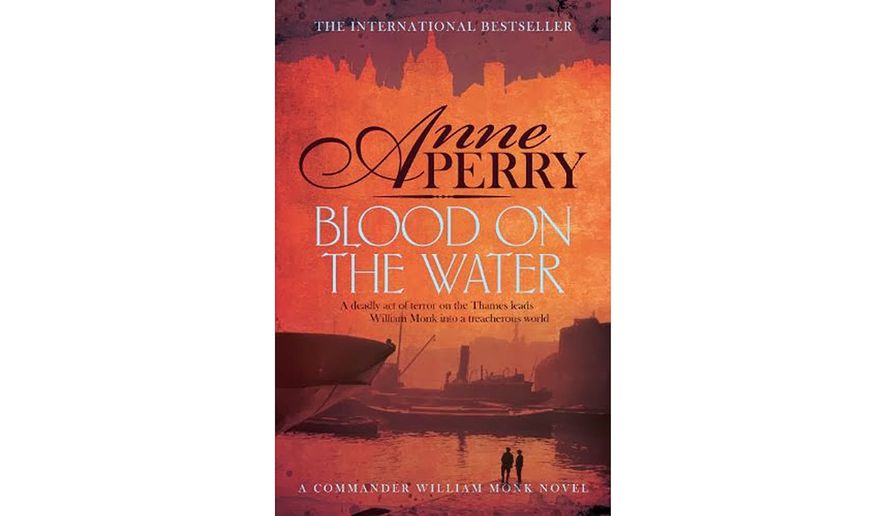OPINION:
BLOOD ON THE WATER
By Anne Perry
Ballantine, $26, 320 pages
Almost 200 men, women and children die when a bomb explodes on the pleasure boat Princess Mary as it floats down the Thames on a summer evening in 19th-century London. The horror of the event is deepened by suspicion that the disaster was not the result of terrorism, but revenge.
Cmdr. William Monk, chief of the Thames River Police, is a witness and even plunges into the river in an effort to find survivors, yet he is told that he will not conduct the immediate investigation into the mystery of the explosion. It is at that point that he questions the reasons for removing the responsibility for the inquiry from the river police who are best qualified to find out what happened.
He is angry and rebellious, but he accepts the ruling of his superior officers, although quietly making inquiries of his own while searching his memory for recollections of suspicious behavior on the river before the explosion.
An arrest is made almost immediately, and a trial is scheduled without delay, which further arouses Monk’s doubts about reaching the real facts of the case. The truth that emerges is as shocking as the explosion itself, pointing an accusing finger at powerful government figures who are often Anne Perry’s favorite target in her accounts of evil in high places. In this case, there is a suggestion that profits accruing from the opening of the Suez Canal may be part of the Princess Mary mystery. There remain, however, many unanswered questions about who was aboard the ship on the night of the bombing, and it is Monk who finds out.
This is one of Ms. Perry’s most engrossing books, and it emphasizes that investigators must rely on those whose work provides them with knowledge and evidence likely to be ignored by a bureaucratic inquiry. In this case, these are the police who patrol the Thames and are familiar with those who roam the river. There is also Monk’s wife Hester, who helps run a group that provides shelter for injured prostitutes. There is also the irresistible adopted river orphan Scuff, who also becomes part of the unofficial inquiry. Monk’s worries that justice is not being done increase after the trial of Habib Beshara, an Egyptian man who is captured and sentenced to death. His execution is delayed by his illness and also by the fact that the determined Monk has presented evidence that the accused was not on board the doomed ship when the bomb went off.
Monk is reassigned as the chief investigator in the case and finds himself in considerable personal danger as he seeks to question not only prison officials, but Lord Ossett, the government adviser to the Home Office who proves to be a central figure in the case. Despite being badly injured when an attempt is made on his life on the river, it is Monk’s investigation that reveals the identity of the bomber, who was, Monk thinks, handsomely paid to be an assassin.
Ms. Perry has always excelled in courtroom scenes and arguments between barristers, and she outdoes herself in two dramatic trials, which prove not only the guilt of the suspect, but the corruption of a judge. She reintroduces Oliver Rathbone, a barrister disbarred for questionable conduct in a previous trial, but now unofficially offering his expertise in the court, where he can no longer practice law. It adds a fillip to the plot that Rathbone is deeply attracted to the wife of a corrupt judge.
The book gallops to a dramatic conclusion, in which the lives of both Monk and Hester are threatened. The chilling truth is at last revealed, disclosing why the Princess Mary was blown up. Was it terrorism or something else? This riveting tale points the way.
Muriel Dobbin is a former White House and national political reporter for McClatchy newspapers and The Baltimore Sun.




Please read our comment policy before commenting.